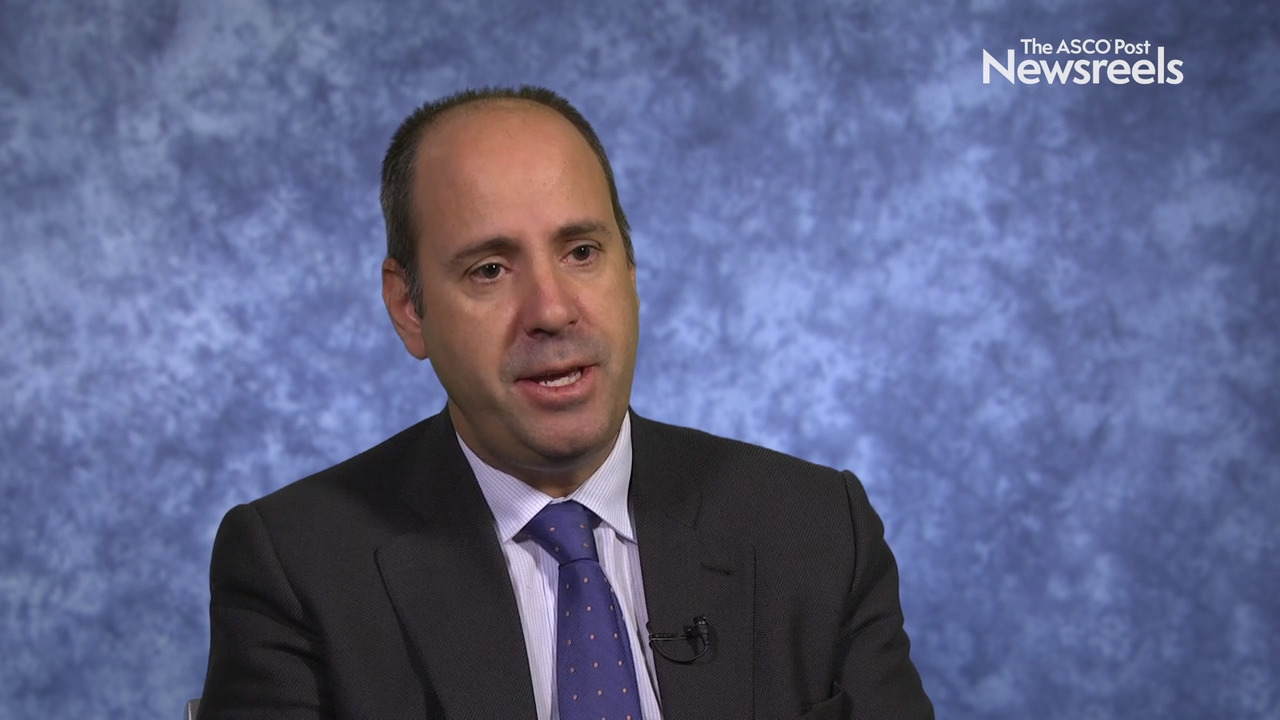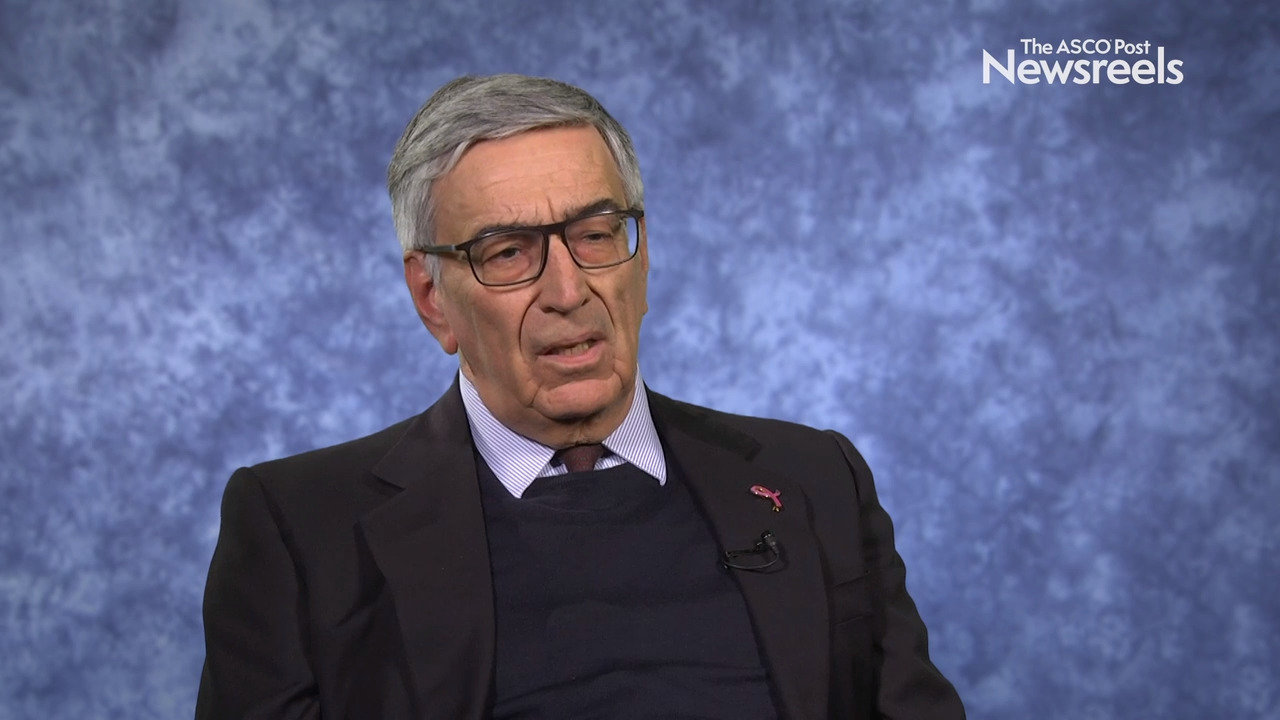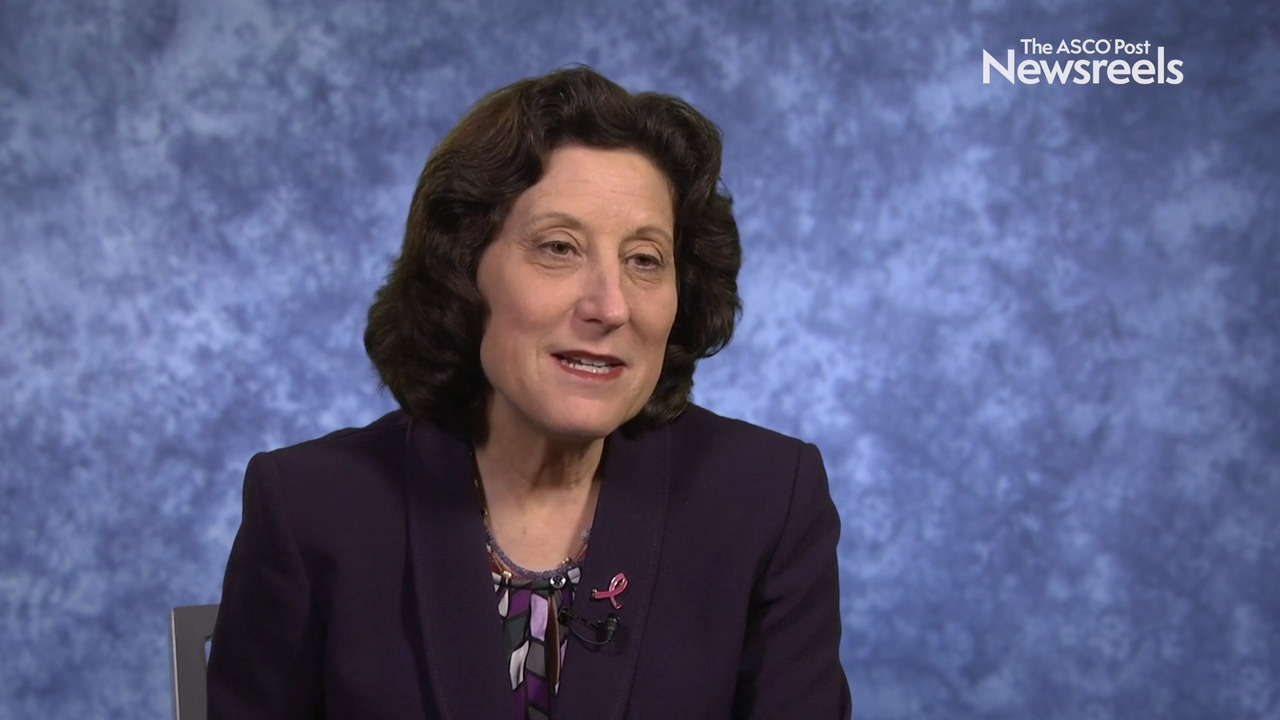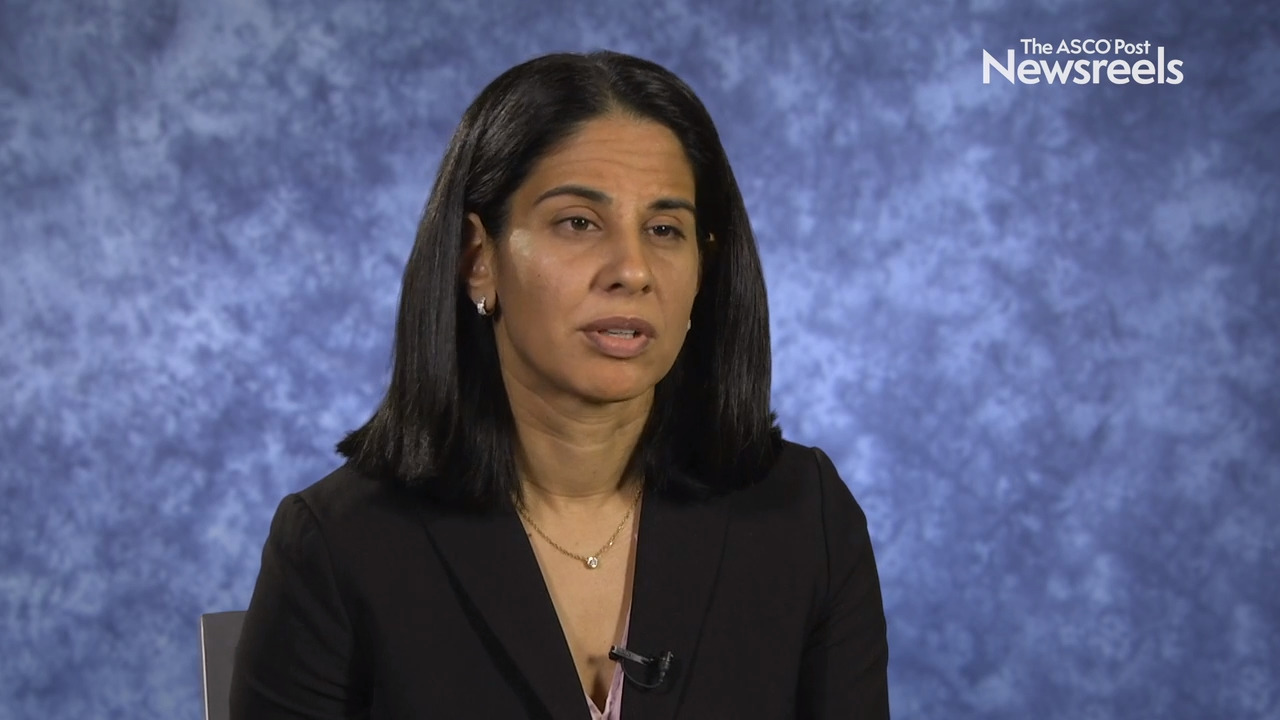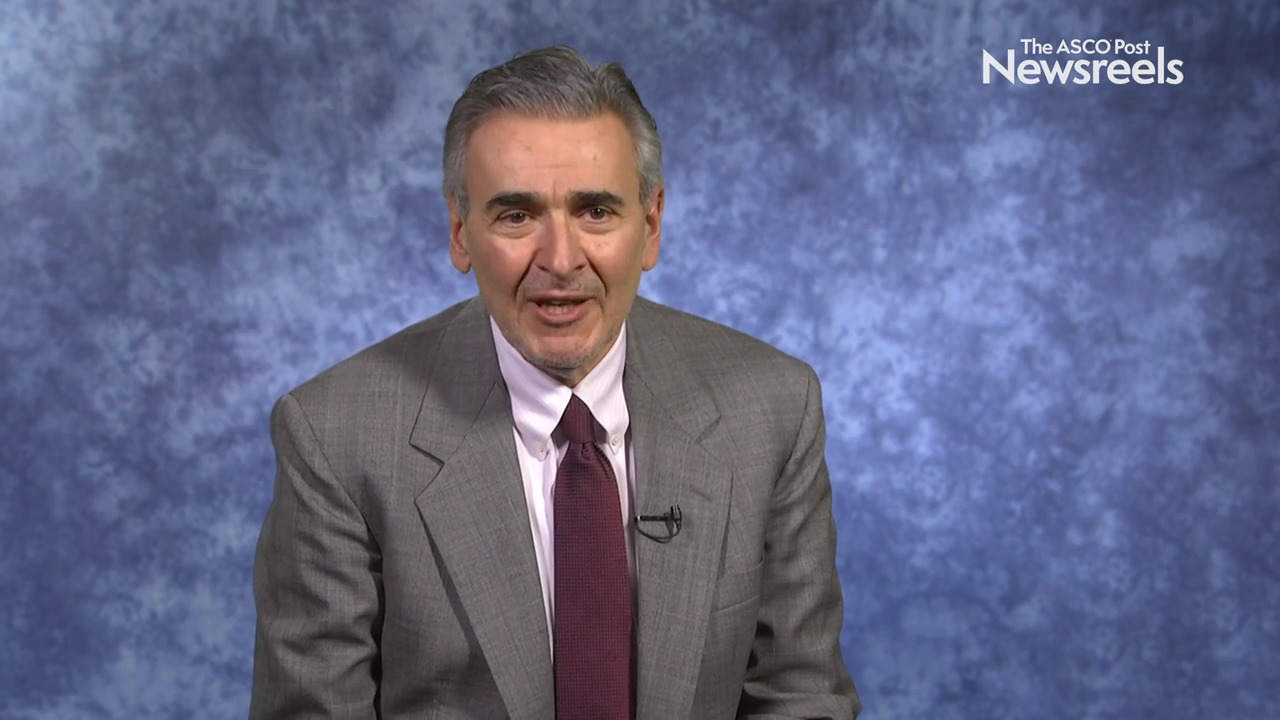Tari A. King, MD, on Molecular Differences Between Primary and Metastatic Breast Tumors
2019 San Antonio Breast Cancer Symposium
Tari A. King, MD, of Brigham and Women’s Hospital and Dana-Farber/ Brigham and Women’s Cancer Center, discusses retrospective findings from the AURORA U.S. Network on molecular differences between primary tumors and metastases, a better understanding of which may help lead to more effective treatment of metastatic breast cancer (Abstract GS3-08).
Javier Cortes, MD, PhD, of the IOB Institute of Oncology, discusses study findings that suggested pembrolizumab offered a prolonged survival benefit compared to chemotherapy for a subset of patients with previously treated metastatic triple-negative breast cancer. In the trial, high tumor-infiltrating lymphocytes were significantly associated with better clinical outcomes with the checkpoint inhibitor.
Luca Gianni, MD, of the Fondazione Michelangelo, discusses findings from the NeoTRIP trial on pathologic complete response to neoadjuvant treatment with or without atezolizumab in triple-negative, early high-risk, and locally advanced breast cancer (Abstract GS3-04).
Hope S. Rugo, MD, of the University of California San Francisco Comprehensive Cancer Center, discusses trial data on margetuximab plus chemotherapy, which improved progression-free survival in patients with previously treated HER2-positive metastatic breast cancer when compared with trastuzumab plus chemotherapy. Maturing data comparing overall survival also provides new insights (Abstract GS1-02).
Sara M. Tolaney, MD, MPH, of Dana-Farber Cancer Institute, discusses phase II findings on patients receiving T-DM1 monotherapy as adjuvant treatment for stage I HER2-positive breast cancer, a regimen associated with few recurrences in the study population (Abstract GS1-05).
Joseph Sparano, MD, of the Montefiore Medical Center, discusses three challenges:
- How can gene-expression profiles and other diagnostic tests be used to guide the use of adjuvant systemic therapy?
- Is it time to reappraise active surveillance?
- Are there diagnostic and therapeutic strategies that can identify tumors at highest risk of metastasis, and novel therapies that can block the spread of disease?
